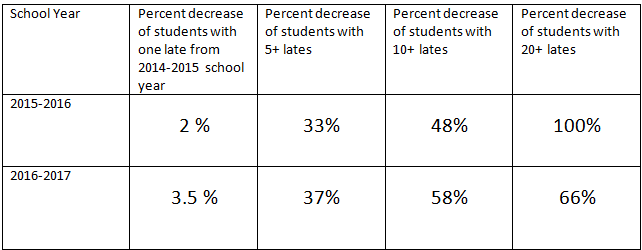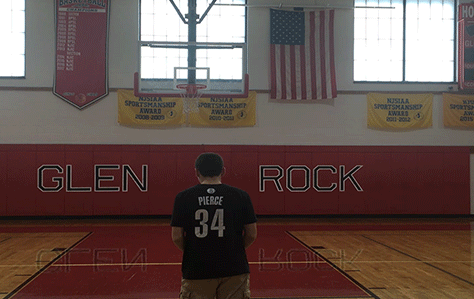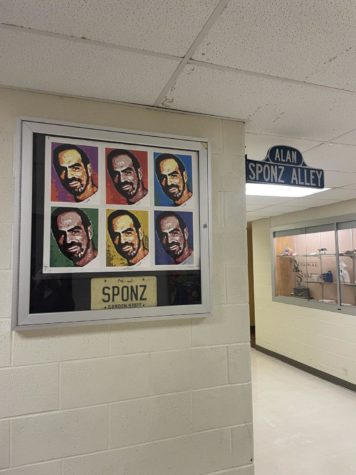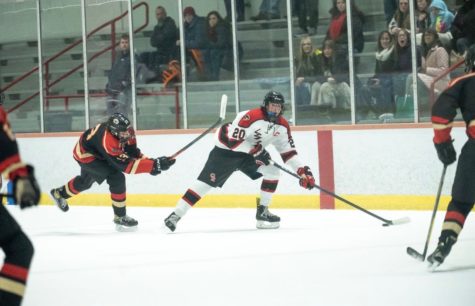New late policy effective in decreasing tardies
January 23, 2017
Glen Rock High School has now had a year and a half under its belt for the new attendance policy, which was introduced at the beginning of 2015. The policy has been successful in decreasing the number of tardies.
“The number of accumulated lates per student dropped dramatically from year 2014-2015. We believe this because of the progressive discipline measures and added security,” Assistant Principal Michael Pasciuto said.
Although it may not be the most beloved policy for students, the statistics prove that the system has successfully prevented a large number of students from being late.
The statistics, however, may be misleading. They indicate that the overall number of lates has not changed across the school population, yet the accumulated lates per person are down.
Pasciuto said the added security in the music wing may have an impact on this disparity.
“Since more students are being held accountable to sign in, less are arriving late undetected. Therefore, increasing the number of recorded lates. Without the music wing and kiosk, it is my belief that the number of total recorded lates would also drop significantly,” Pasciuto said.
In comparison to the 2014-2015 school year, before Pasciuto installed the late system, the number of students being marked late ten times has decreased by 44.5 percent.
However, many students are still not a fan of this policy and want the disciplinary level to be reduced.
“I play basketball and I have a lot of friends that play sports and have a lot of homework every night,” Luke Nuzzo (‘17) said. “The first detention should occur at ten lates rather than five. Kids are exhausted and are put into a lot of stress, and when they have trouble waking up at times, they pay the price for it,” Nuzzo said.
Pasicuto believes that it is important for students to manage their time regardless of the activities that they do.
“I think teaching an individual the ability to balance responsibility with extra-curricular activity is a life lesson,” Pasciuto said.
After a student receives five lates, he or she is given one detention. If the student continues to be late, the number of detentions that the student must attend increases. Detentions occur in the morning at 7:15 a.m. in room S-234. This requires the students to wake up even earlier than usual.
There are, however, some students who are in favor for it.
Sharif Hebela, a senior, makes being on time for school a priority. Hebela believes the late system is effective as he only has a few lates this year.
“I understand why it’s there. In everyday life we are going to need to do this. We can’t show up late all the time and develop these bad habits in high school,” Hebela said. “You can’t run on your own clock. You have to run on life’s clock.”
For Pasciuto, he sees late policy enforcement as a part of growing up.
“I get it it’s difficult to wake up in the morning [as a teenager]. I was in high school as well, but I can’t be late to work, and these kids parents can’t be late either. Sometimes we have to do things that we just don’t want to do,” Pasciuto said.






